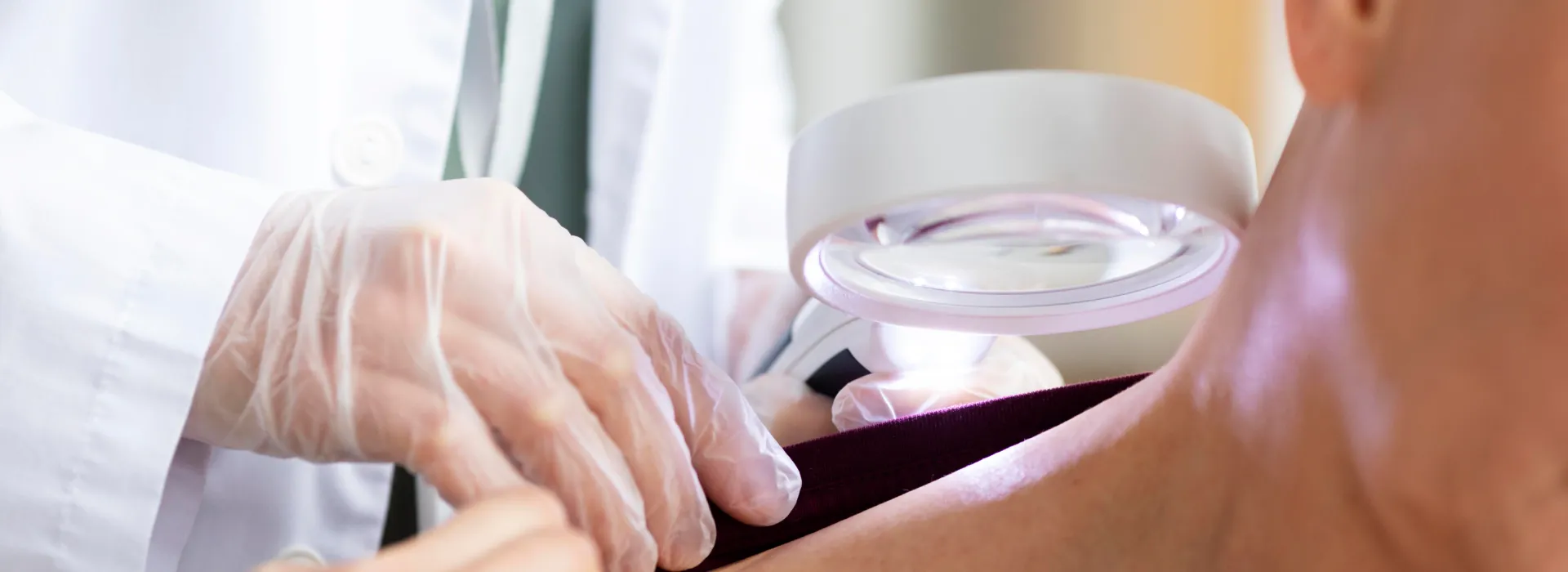Regular skin checks for Aussies: A lifesaving habit
Written by Dr Gosagan Gopalakrishnan, BSc (Hons), MBChB, DRCOG, MRCGP, FRACGP

Contents

Australia, with its abundance of sunny days, is a haven for outdoor enthusiasts - but with this privilege comes a significant responsibility - taking care of your skin. Australia has one of the highest rates of skin cancer in the world, making regular skin checks a must. This article will guide you through how to check your skin at home, understand your skin cancer risk, the importance of regular checks, and how telehealth plays a role in this preventive measure.
How to check your skin for cancer at home?
Regular self-examination is your first line of defence against skin cancer. Here’s a step-by-step guide:Set a regular time:
Aim to check your skin once every three months. Use good lighting, a full-length mirror, and a hand mirror to view hard-to-see areas. Setting a recurring reminder on your phone is a great way to prompt you. I think it is great to time to check for any lumps on your breasts or testicles too!Know your skin:
Familiarise yourself with the patterns of moles, freckles, and other marks on your body. Taking your own set of photos can be helpful and store them on a folder on your phone. The key is to spot any changes over time.Follow the ABCDEs:
- A for Asymmetry: One half of the mole doesn’t match the other.
- B for Border: Edges are irregular, ragged, or blurred.
- C for Colour: Varies from one area to another—shades of tan, brown, black, purple, sometimes white, red, or blue.
- D for Diameter: Larger than 6mm (about the size of the end of a pencil), although some melanomas can be smaller.
- E for Evolving: Any change in size, shape, or colour.
- Or EFG for Elevated, firm and growing.
Check all areas:
Don’t forget hidden areas like the scalp, in between toes, soles of the feet, under the nails, genital regions, and behind the ears. If you notice anything suspicious, consult a doctor promptly. Early detection dramatically increases the chances of successful treatment.Experiencing these symptoms? Speak with a doctor within 15 minutes.
See a Doctor now
Available 24/7, across Australia.
Am I at risk of skin cancer?
While skin cancer can affect anyone, certain factors elevate your risk:- Skin type: Fair skin that burns easily increases your risk.
- Sun exposure: Prolonged or frequent exposure to harmful UV radiation from the sun, especially without protection, raises the risk.
- Age: Skin cancer risk increases with age, but young people aren’t exempt, especially with high sun exposure.
- Family history: A personal or family history of skin cancer increases your risk.
- Immunosuppression: If your immune system is weakened (e.g., by organ transplants or certain medications), your risk is higher.
- Tanning habits: If you ignore advice and regularly look for that bronze glow or beetroot hue down the beach, you are at higher risk. The use of tanning beds is associated with a higher risk of skin cancer but thankfully these are banned in Australia!
Should I have a skin cancer check?
Yes. Regardless of risk factors, everyone should have a skin check, especially in a country like Australia where UV radiation is so intense. While self-examinations are important, professional skin checks are vital because trained doctors can detect subtle changes that you might miss. If you have never had one, ask the doctor how often you need to have one based on your individual risk factors. People with high-risk factors, such as a family history of melanoma, multiple moles, or a history of sunburns, should prioritise regular professional checks even more.How often should I have a skin check in Australia?
How often you need a skin check depends on your risk level. For Australians with lighter skin tones, an annual skin check is recommended. However, those at higher risk might require more frequent checks, potentially every six months. Your GP can provide personalised advice based on your skin type, medical history, and lifestyle. The Australian climate is unforgiving, and given the high incidence of skin cancer, regular skin checks can be a life-saving routine.Does Medicare Australia cover skin checks?
Yes, skin checks are covered by Medicare in Australia when performed by a general practitioner. While some specialised skin clinics may charge out-of-pocket fees, some GP practices offer skin checks under bulk-billing arrangements, meaning there is no direct cost to the patient.When should I start getting regular skin checks?
There’s no set age to start skin checks, but the earlier, the better. In Australia, where even childhood sun exposure can increase future skin cancer risk, it’s wise to begin regular checks as a young adult. If you’ve had significant sun exposure during childhood, start earlier. People with a family history of skin cancer or a history of bad or repeated sunburns should consider beginning checks even in their teenage years. For others, starting in your twenties is a good rule of thumb.When should I consult a doctor?
While regular self-checks are important, knowing when to consult a doctor is key. You should see a doctor if:- You notice a new mole or skin lesion.
- A mole or spot changes in size, shape, or colour.
- You have a sore that doesn’t heal.
- You see a spot that is crusty, bleeding, or doesn’t go away after a few weeks.
How can Hola Health help?
Hola Health’s online doctor can assist with several key aspects of telehealth for skin health:- Instant consult online: You can have virtual doctor appointments to discuss skin concerns, from suspicious moles to rashes. Our doctors can provide preliminary assessments, advice, and guidance on managing skin issues without needing to visit a physical clinic.
- Doctor's referrals: If your skin requires a specialist's opinion or further tests like biopsies, our online doctors can provide referrals and ensure you are connected with the necessary care quickly and conveniently.
- Online scripts: Need an online prescription for skin-related conditions such as eczema, acne, or infections? Our doctors can write and send prescriptions electronically, with the option to pick them up at a local pharmacy or have them delivered.
- Medical certificates: Whether it’s due to a dermatological procedure or recovery time from a skin condition, Hola Health’s online doctors can issue medical certificate online as needed.
Conclusion
Skin cancer is a significant concern in Australia, but regular skin checks—both at home and with a professional—can help catch the disease early, when it's most treatable. Knowing your risk, performing regular self-exams, and scheduling annual skin checks are simple steps that can make a big difference in protecting your health. With Medicare contributing to skin checks, there’s no reason to delay. Start early, stay vigilant, and make skin checks a regular part of your health routine.Concerned? Get a specialist referral without leaving your couch in just 15 minutes.
See a Doctor now
Available 24/7, across Australia.
What we treat
- Cough
- Nausea & vomiting
- Fever
- Hayfever
- Fatigue
- Sore throat
- Acne
- Hair loss
- Gout
- Eczema
- Rosacea
- Sunburn
- UTI
- Erectile dysfunction
- Contraception
- Morning sickness
- Morning after pill
- Prostate health
- Anxiety
- Depression
- Stress
- Grief & loss
- Antidepressants
- Premature ejaculation
- Asthma
- Blood pressure
- Blood thinners
- Diabetes
- Cholesterol
- Migraines & headaches
- Allergies
- Body ache
- Heartburn & reflux
- Sleep disorder
- Pain relief
- Gastro
Related Articles
Disclaimer
This blog is for general informational purposes only and does not indicate that Hola Health provides all treatments or preventive measures mentioned. It is not intended to be a substitute for professional medical advice. Always seek the guidance of your doctor or other qualified health professional with any questions you may have regarding your health or a medical condition. For emergencies please immediately contact 000. Any medical topics discussed are intended to educate, not to imply availability through Hola Health.
 Facebook
Facebook  X
X  Copy Link
Copy Link



